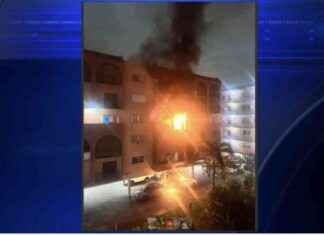Runaway inflation, above 10%, the imminent rise in interest rates and the deterioration of business confidence make up a cyclogenesis capable of ruining the economic progress that was expected after the pandemic and dragging the Government with it. A situation that the PP wants to take advantage of to make its leader, Alberto Núñez Feijóo, win several boxes in his race to Moncloa.
If in addition the Executive is forced to depend on the popular ones to raise investment in defense to 2% of GDP in 2029 -12,000 million, 1,700 million a year- or to approve the extension of Rota, the PP believes that it plays white .
It is the strategy that they draw in Genoa and that Feijóo has taken for a walk on a tour of the so-called historical communities that yesterday took him to Catalonia, after passing through the Basque Country and today to Galicia. The leader arrived in Barcelona at noon to explain to the Catalan employers Foment del Treball his economic plan with which to deal with the current inflationary crisis. Then, at the PP de Catalunya summer school in Cerdanyola del Vallès, he warned Pedro Sánchez that if he does not attend to domestic affairs efficiently, he will end up losing the elections: “When a government disconnects from society, it has an expiration date” .
Feijóo brandished the neglect that, in his opinion, the Government practices in the face of the “greatest price crisis in 35 years” as an example of the mistake in which, in his opinion, someone who aspires to renew the confidence of citizens should not persist. And he confronted her with her recipes, based on “useful politics,” which “doesn’t go out of style,” he said.
They are the same measures that he already sent to Sánchez in April, among which are a reduction in taxes (including VAT on electricity); the reduction of the “superfluous expense” of the Executive “in politicians and advisers”, and deflate the IRPF for those who enter less than 40,000 euros. “They said they were cosmetic (…) but when they lower VAT on electricity it turns out that they are progressive and reasonable,” Feijóo reproached.
Faced with the arrogance that the PP sees in Sánchez after the successful NATO summit, yesterday they demanded that the president “come down from the cloud and return to Spain” to attend to the situation of “almost economic emergency”, in the words of the deputy secretary of institutional Esteban Gonzlez Pons. Feijóo was less direct: “Disconnecting is when inflation devours families, they stop consuming, private consumption falls… Any government that does not prioritize this problem has disconnected and when it disconnects, the voter…”, he warned.
But the economy is mixed with other current issues, such as the government’s commitment to fulfill the Atlantic mandate of increasing the defense budget and the presence of US destroyer ships at the Rota base in Cadiz. With the coalition partner against, Sánchez has to forge new alliances and require the participation of the popular, who have already promised to act with a sense of State.
This dependency places the PP in a position of strength that leads it to demand “many explanations” from the Executive. “Our country is in a situation of almost economic emergency and the Government continues to deny reality and apply patches,” González Pons stressed. And regarding defense spending, “we will have to know where the money is going to come from, the Government will have to explain it to us,” he claimed.
Feijóo was so confident of beating Sánchez at the polls that he allowed himself to “settle the debate” on the variety of “styles” in his party, endorsing the “model” of regional presidents such as Isabel Díaz Ayuso or Juanma Moreno: “There are so many styles as people in the PP”.








